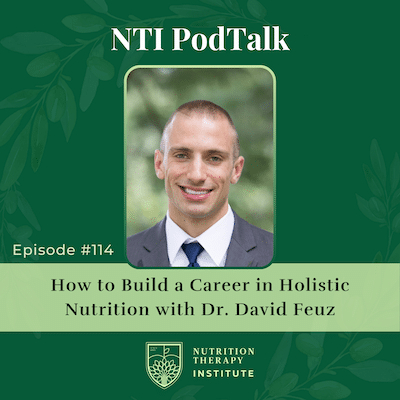
Share this post!
When I was in naturopathic medical school, I was continually facing questions about which nutrient was helpful for which situation. It could’ve been in class, on an exam, or during a clinical rotation. Which nutrient supports more than 300 enzymes in the body? Which nutrient is most often deficient when there are muscle cramps? Which nutrient relaxes blood vessels? Is Magnesium Really the Miracle Mineral? I was an excellent student and usually knew the right answer. But if I ever felt uncertain, my default answer to these sorts of questions was always “magnesium.” Given that magnesium performs so many functions that are critical to human health, it was usually a safe bet.
Surveys of US residents show that most people don’t consume enough magnesium in their diets. Even if these people don’t experience extreme symptoms of magnesium deficiency, they might suffer from more subtle effects of low intake.
That’s because magnesium is involved with enzyme systems that regulate blood sugar, blood pressure, muscle and nerve function, antioxidant defenses, cellular energy production, and more. As you can imagine, if any of these functions become compromised, health could suffer.
Whereas some people may consider magnesium to be a miracle mineral, other people know very little about it. Read on for a deeper dive into the functions of magnesium, food sources, and options for supplementation.
10 Benefits of Magnesium
1. Supports Cellular Energy
The molecule that carries energy to every cell of the human body is called adenosine triphosphate (ATP). ATP is produced in the mitochondria of the cell with the help of several enzymes. One of those enzymes depends on magnesium. That means that insufficient levels of magnesium could compromise mitochondrial function and cellular energy production. That’s why some of the early signs of inadequate magnesium are feelings of weakness or fatigue.
2. Supports Antioxidant Defense Systems
One of the most serious threats to human health in modern times is oxidative stress. Oxidative stress can be triggered by exposure to environmental toxins, cigarette smoke, or unhealthy foods. If left unchecked, oxidative stress can damage cells and contribute to disease. One of the most important cellular antioxidants in the human body is glutathione. Magnesium is required for glutathione synthesis and, therefore, central to supporting antioxidant defenses.
3. Supports Healthy Blood Sugar and Insulin
Magnesium participates in the function of insulin. Problems with insulin sensitivity are at the core of blood sugar disturbances, like metabolic syndrome and diabetes. National surveys of US adults have shown that people who consume the highest daily intake of magnesium (≥ 355 mg/d) have a 32% lower risk of metabolic syndrome than those consuming the least magnesium (≤ 197 mg/d). Other studies have shown that low magnesium intake is associated with a greater risk of type 2 diabetes.
4. Supports Thyroid Function
Thyroid health is complex and depends on several micronutrients, including iodine, selenium, and zinc. The exact role of magnesium in thyroid health is less understood than some of these other minerals but it appears to be important. One theory of thyroid imbalance suggests that it’s related to changes in mitochondrial health because of nutrients that include coenzyme Q10 and magnesium. In a recently published study, severely low levels of magnesium were associated with an increased risk for thyroid disease.
5. Supports Nerves, Muscles, and Bones
There are so MANY benefits of magnesium that I needed to combine these three into one. More than half of the body’s magnesium is stored in the bones. Magnesium is required for the metabolism of vitamin D, which is critical for calcium absorption and bone health. Magnesium participates in nerve signaling and protects the health of nerve cells. Magnesium plays a role in muscle cell contraction, and magnesium depletion may be one explanation for muscle cramps.
6. Supports Healthy Blood Pressure
Magnesium has a relaxing effect on the smooth muscle of blood vessels, allowing them to dilate. Magnesium is used by doctors to treat high blood pressure of pregnancy. A 2017 review of several well-conducted studies concluded that a lower dietary intake of magnesium was associated with a higher risk of elevated blood pressure. The relaxing effect that magnesium has on blood vessels may also explain why it is useful for people with migraine headaches.
7. Combats Constipation
Just as magnesium relaxes the smooth muscle of the blood vessel walls, it also relaxes the smooth muscle of the intestinal tract. This is one way that it helps support healthy bowel movements and combat constipation. Also, magnesium helps moisten the stool by holding water in the lumen of the intestinal tract. Studies suggest that magnesium is a reasonable consideration to help combat constipation.
8. Reduces Stress
One claim to fame for magnesium is that it helps people who are exposed to stress. Animal studies show that magnesium deficiency is associated with increased levels of cortisol as well as more irritability. Studies have found that stress may lead to magnesium depletion and an increased demand for this mineral.
9. Promotes Calm and Relaxation
Surveys have shown that US adults who sleep fewer than 7 hours per night have inadequate intakes of magnesium. Also, magnesium may be related to sleep quality. Magnesium promotes the action of the calming neurotransmitter, gamma-aminobutyric acid (GABA) and inhibits the release if the excitatory neurotransmitter, glutamate. The calming effect that magnesium has also has been shown to alleviate anxiety.
10. Supports Lung Function
You’ll notice a trend with magnesium. It helps things relax. That’s true for the blood vessels, muscle, nerves, and mind. It is also true for the bronchioles of the lungs. Studies show that magnesium deficiency is common in people with asthma and worsens the severity of the condition. A recent study in children with asthma suggested that magnesium shows promise in supporting healthier lung function.

Foods with Magnesium
Magnesium is part of the chlorophyll molecule, so it is widespread in plant foods—especially green leafy vegetables. Although magnesium is present in whole grains, it is largely removed when grains are refined and processed. Below are some examples of magnesium-rich foods:
- Almonds
- Cashews
- Peanuts
- Spinach
- Black beans
- Kidney beans
- Yogurt
- Avocado
- Oatmeal
- Bananas
Although magnesium is widespread in foods, many people do not consume a sufficient amount. For those looking to boost their magnesium intake, supplementation can be a viable option.
Supplemental Forms of Magnesium
There are many choices when it comes to supplement forms of magnesium. Here are the highlights of the most popular forms:
- Magnesium sulfate is the same as Epsom salts. It can be dissolved in a bath to dissolve sore muscles but if taken internally may have a laxative effect.
- Magnesium oxide is not well absorbed from the intestinal tract. Magnesium oxide is a common choice to combat constipation, but too much can cause loose stools or diarrhea.
- Magnesium citrate is a popular form of supplementation because it is readily absorbed and utilized by the body. It is also a relatively inexpensive form of the mineral.
- Magnesium lactate, aspartate, and chloride are also highly bioavailable forms of magnesium.
- Magnesium glycinate is a chelated form of magnesium, bound to two molecules of the amino acid glycine. Magnesium glycinate is touted as a highly bioavailable form of magnesium.
- Magnesium orotate is a unique combination of magnesium and orotic acid. It is popular among athletes or people with muscular weakness and pain because of its ability to support tissue repair.
- Magnesium threonate is another specialty form of magnesium. This form is gaining popularity for its ability to support brain and mental health.
Suggested Intake of Magnesium
The recommended daily intake of magnesium is 320 mg for women and 420 mg for men. Pregnancy or nursing women need more. If supplementing with magnesium, consider balancing its intake with other minerals, such as calcium and zinc. Many people choose to take their magnesium in the evening because of its calming effects.
The Miracle Mineral?
No single nutrient can solve every problem. But magnesium might come close. With magnesium filling so many essential roles in human physiology, it’s hard to argue against its status as a miracle mineral. Still, please use this nutrient wisely. Always consult with a nutrition therapist or healthcare provider to be sure you take any supplement in a safe and effective way.
_________________________________________________________________________________________________________________
About the Author
Sarah Cook, ND, is an instructor at the Nutrition Therapy Institute. She is also the owner of ND Pen, providing branding, copywriting, and website design services for integrative healthcare practitioners. Connect with Sarah at www.ndpen.com.
About Nutrition Therapy Institute’s Holistic Nutrition Certification
Nutrition Therapy Institute (NTI) is a leader in holistic nutrition education. Since 1999, NTI has provided students with the highest quality in nutrition training by offering comprehensive holistic nutrition courses online and in-person to help students achieve thriving careers as holistic nutrition therapists in the field of holistic nutrition counseling and wellness. Interested in starting our holistic nutrition courses and earning your holistic nutrition certification? Attend an informational webinar to learn more by signing up HERE.
Images:
Image by Alisha Mishra is free for use by Pexels
Flat-lay Photograph of Bread, Tomatoes, and Avocados by Elle Hughes is free for use by Pexels
Share this post!


















